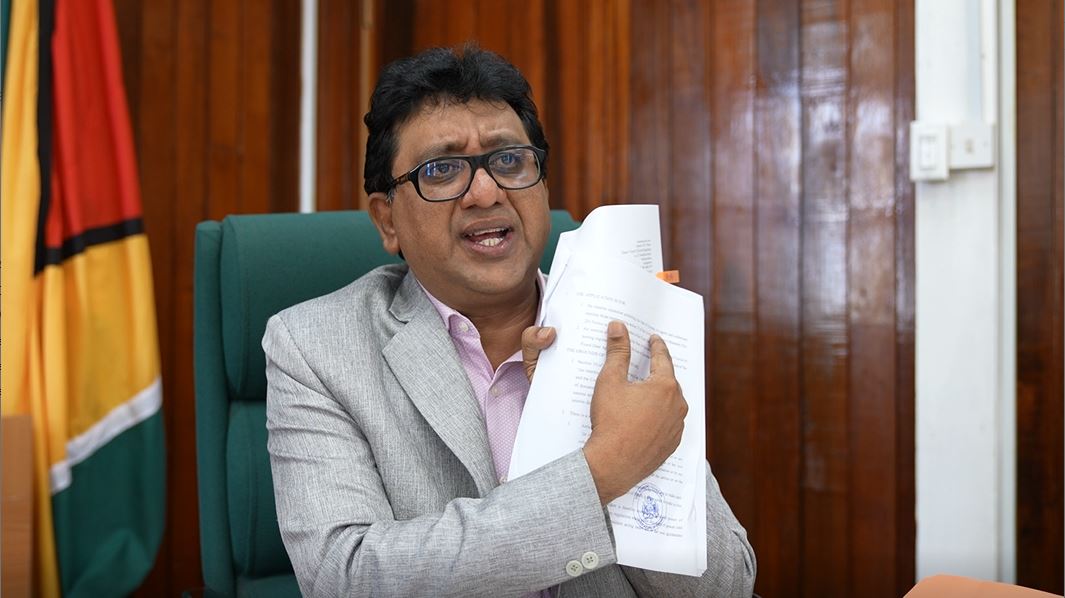
By Vishani Ragobeer
Attorney General and Minister of Legal Affairs Anil Nandlall SC has posited that the High Court ought not to grant an injunction stopping the government from rolling out its COVID-19 vaccination requirements.
A Fixed Date Application was filed challenging the government’s COVID-19 Emergency Measures that have been published in the Official Gazette and detail, among other things, the vaccination requirements before entry into public and some private buildings.
These proceedings have been brought by the Guyana Teachers’ Union (GTU), Guyana Public Service Union (GPSU) and the Guyana Trades Union Congress (GTUC) and the Attorney General is the lone respondent.
Before the hearing of the substantive case, however, the applicants have asked the High Court to grant an interim injunction.
An injunction is a judicial order that restrains a body (in this case, the government) from beginning or continuing an action. The injunction being sought by the Unions will stop the government from implementing the section of the gazetted COVID-19 measures that states the vaccination requirements until the challenge against the measures are judged.
During a hearing before Justice Fidela Corbin-Lincoln on Wednesday at the High Court, Nandlall contended that the legal challenge filed by the Unions’ attorneys-at-law erred in law since an injunction against the State ought not to be granted.
The Attorney General contended that if a prohibitory order was being sought, then a Conservatory Order should have been sought instead of an injunction. The Conservatory Order is a decision by a court to ensure things do not change while a case is being decided; essentially, it preserves the status quo.
“The drafters were very careful so as not to transgress the provisions of the State Liability (and Proceedings) Act in the Judicial Review Act by pointing to the fact that if you want a prohibitory order against the state, then you may have to go and get a conservatory order.
“…. an injunction jurisprudentially remains limited as prescribed under the State Liability and Proceedings Act,” the Attorney General stated.
Attorney-at-law Dane Elliott- Hamilton, who is representing the unions, disagreed.
In this case, he said that the Judicial Review Act is a “specific piece of legislation” that deals with “specific proceedings” and he contended that it clearly gives power to the court to grant interim injunctions.
“… insofar as the learned Attorney- General is indicating that the court as a matter of law does not have the power to grant injunctions in judicial review proceedings, we respectfully disagree and we submit that the court does have the power,” the lawyer told Justice Corbin- Lincoln.
The attorney also told the Court about the urgency of the matter given that the Emergency Measures were restricting some citizens from engaging in day-to-day activities because of their COVID-19 vaccination status.
Justice Corbin- Lincoln said that she had “some reservations” about whether the Court ought to grant such interim declarations. And, she said that this discussion may require the parties to deal with the substantive matter of the actual legal challenge against the emergency measures instituted.
As such, the parties were asked to file written submissions to the Court and the matter raised by the Attorney General will be heard on September 17, 2021. Meanwhile, the substantive matter will be heard at a later date.







